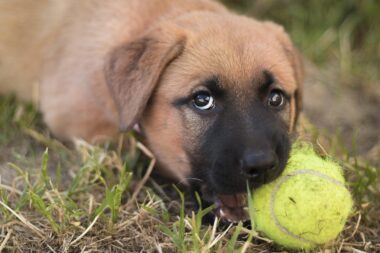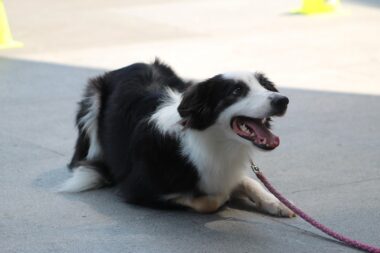Essential Puppy Training Techniques for New Dog Owners
Training your puppy is crucial for their development and your relationship. Effective training begins early, ideally within the first few months. Use positive reinforcement, where good behaviors are rewarded with treats or praise. This method fosters a sense of achievement in your puppy and encourages them to repeat desirable actions. Consistency is key, so ensure all family members are on the same page regarding commands and rewards. Implementing a structured routine can help your puppy learn when to expect training and walks. In addition, socialization is incredibly important; expose your puppy to different environments, sounds, and people to build their confidence. Regular exposure helps them adapt to various situations and reduces anxiety. Consider using clicker training as a precise way to mark desirable behaviors. A clicker or distinct sound followed by a reward reinforces your training efforts. Patience and understanding are also essential during this process. Puppies may not grasp concepts immediately, which is normal. Together, these foundational techniques will ensure a well-adjusted and obedient adult dog. Remember to enjoy the process. Training should be a fun bonding experience for you and your puppy.
When it comes to teaching commands, begin with basic ones like “sit,” “stay,” and “come.” Start in a distraction-free environment to focus your puppy’s attention. Use short training sessions of approximately 5 to 10 minutes. Puppies have shorter attention spans, so frequent breaks are necessary to keep them engaged. Additionally, vary the training location as your puppy becomes more confident; this helps generalize their learning in various environments. Gradually introduce distractions during training sessions to improve your puppy’s focus. For example, practice commands in the presence of other pets or sounds. As your puppy masters commands, increase the difficulty by adding distance or duration to the exercises. It is also helpful to maintain a training journal to track progress. Documenting your puppy’s achievements can highlight what works and areas needing improvement. Furthermore, consider enrolling in a puppy training class. Professional trainers can provide valuable insights and techniques. Social interaction with other puppies can also enhance social skills, making your puppy well-rounded. Always remember that the goal of training is not just obedience but shaping a well-adjusted dog able to thrive in various situations.
Using Positive Reinforcement
Positive reinforcement is the most effective method for training puppies, fostering an environment of trust and love. When your puppy engages in a positive behavior, provide immediate rewards such as treats or affection. This technique creates a clear association between the behavior and the reward. For instance, if your puppy sits on command, reward them instantly to reinforce the action. Ensuring the reward is something your puppy finds motivating is essential. Some puppies are more motivated by toys, while others prefer treats. Experiment to discover what your puppy responds to best. Consistently rewarding even small successes boosts your puppy’s confidence and reinforces their learning. Positive reinforcement, combined with verbal praise and petting, strengthens your bond. Stay patient throughout this process; incorrect performances should be handled gently. Instead of punishing unwanted behaviors, redirect your puppy’s attention elsewhere and reward them when they engage in desirable actions. This approach fosters a positive learning atmosphere. Lastly, keep training sessions fun and engaging to maintain your puppy’s interest. Encouragement is vital; celebrating small milestones is just as important as the big accomplishments! Building a supportive and motivational training environment is key to success.
Another effective technique for training is establishing a command hierarchy. Teaching commands in a structured order, starting with basic commands, lays a solid foundation for advanced training later. Begin with single-command exercises and gradually incorporate multi-command sequences. For example, teach “sit” before introducing “sit and stay.” This progression helps your puppy understand commands better as they build on what they already know. Keep commands short and clear to avoid confusing your puppy. Tone of voice plays a significant role; use a cheerful tone when rewarding good behavior and a firm, calm tone when correcting unwanted actions. Dogs are adept at picking up on emotional cues, and your tone can significantly influence their responses. Incorporating hand signals alongside verbal commands enhances learning as well; puppies often respond well to visual stimuli. Use distinct hand gestures that align with the command, ensuring consistency in usage. Additionally, incorporating fun activities during training can keep your puppy engaged. Implement games that require following commands to make learning enjoyable and memorable. By creating an engaging learning space, you pave the way for a well-behaved puppy that enjoys the training process.
The Importance of Socialization
Socialization is a fundamental aspect of puppy training; it prepares them for the world around them. Start introducing your puppy to various people, animals, and environments as soon as possible. Positive early experiences with unfamiliar sights and sounds foster confidence. Ensure these interactions are pleasant; rewarding your puppy during exposure will create long-lasting positive associations. Gradual introduction is vital to avoid overwhelming your puppy. Take them to parks, pet stores, and friends’ homes to help them adapt. Obedience classes can also be an excellent environment for socialization. Engaging with other puppies promotes social skills, teaching your puppy to play, communicate, and understand canine body language. Moreover, constant exposure to different stimuli helps reduce fear and anxiety in adulthood. Each exposure should be brief but frequent; regularity is crucial. If your puppy appears fearful, calmly remove them from the situation and try again later. Establishing ongoing socialization routines is key as your puppy grows to ensure they become a well-adjusted adult dog. Remember, the goal is not just obedience but fostering a happy, confident dog that thrives in diverse situations.
Consistency in commands, rewards, and routines plays a vital role in puppy training success. Dogs thrive on a predictable structure; it makes them feel secure in their environment. Implement training commands consistently across all family members to avoid confusion. Use the same words and hand signals to convey instructions, creating a unified training approach. Ensure training remains part of their daily routine, incorporating different sessions for specific commands and tricks. Regular practice keeps commands fresh in their minds. In addition, promote good manners both at home and outside. Establish boundaries early to prevent bad behaviors from becoming habits. Enforce consistent rules regarding what is acceptable or not. For instance, if jumping on guests is not allowed, it should be discouraged consistently every time, not just occasionally. Utilize everyday circumstances to reinforce training. Whether during walks or during playtime, seize opportunities to remind your puppy of their training. Lastly, remain positive and patient through this process. Your encouraging demeanor reinforces your bond and makes training a joyful experience. Consistent training establishes trust and a clear understanding of expected behaviors, leading to a well-behaved adult dog.
Conclusion: Building a Bond Through Training
Training your puppy is an opportunity not only for obedience but also for strengthening your bond. Approach the training journey as a collaborative adventure. Engage with your puppy, taking time to understand their personality, instincts, and energy levels. As you train, embrace the moments of joy and challenge, recognizing they are all part of the learning process. When training with love and patience, you lay a foundation for a strong trust-filled relationship. Incorporate training into your daily life, making it interactive and enjoyable through games and play. Also, remember that progress takes time and each puppy learns at their pace. Celebrate small victories, whether it’s learning a new command or simply being calm in a new environment. Your positive reinforcement is crucial in nurturing their growth. Lastly, don’t forget to enjoy your puppy’s antics; their playful spirit is infectious. Training should not be a chore but an enriching experience for both of you. With time and care, your puppy will transform into the loving, well-adjusted adult dog you envision. Keep your training sessions lively and rewarding, setting the stage for countless adventures together.
Training your puppy is crucial for their development and your relationship. Effective training begins early, ideally within the first few months. Use positive reinforcement, where good behaviors are rewarded with treats or praise. This method fosters a sense of achievement in your puppy and encourages them to repeat desirable actions. Consistency is key, so ensure all family members are on the same page regarding commands and rewards. Implementing a structured routine can help your puppy learn when to expect training and walks. In addition, socialization is incredibly important; expose your puppy to different environments, sounds, and people to build their confidence. Regular exposure helps them adapt to various situations and reduces anxiety. Consider using clicker training as a precise way to mark desirable behaviors. A clicker or distinct sound followed by a reward reinforces your training efforts. Patience and understanding are also essential during this process. Puppies may not grasp concepts immediately, which is normal. Together, these foundational techniques will ensure a well-adjusted and obedient adult dog. Remember to enjoy the process. Training should be a fun bonding experience for you and your puppy.





